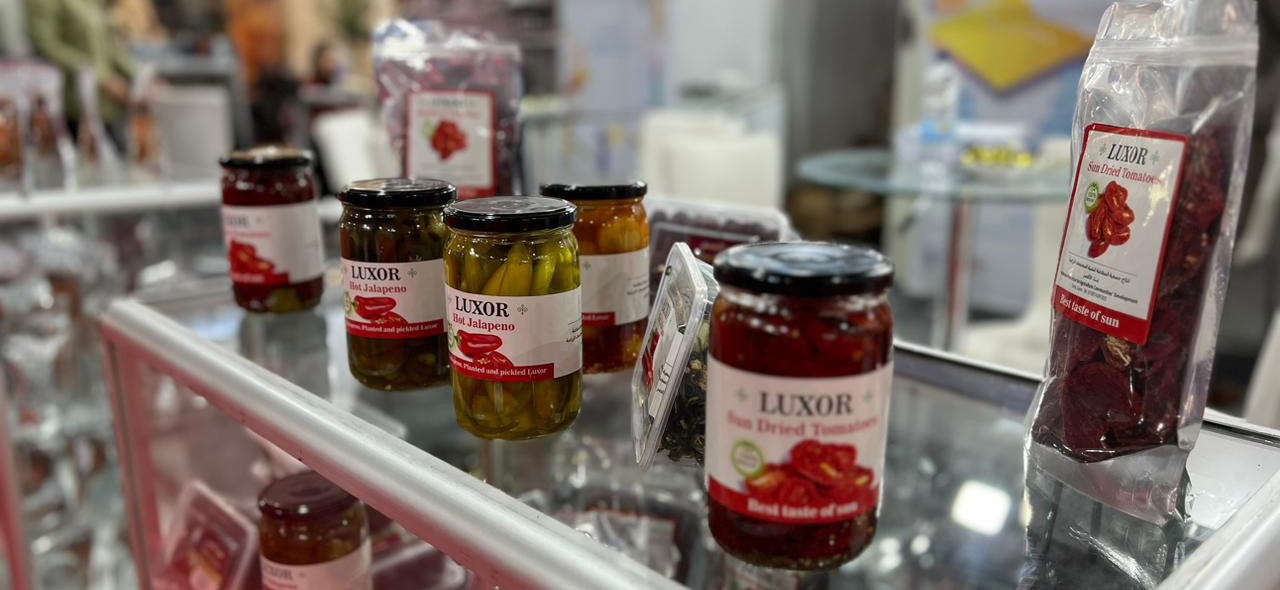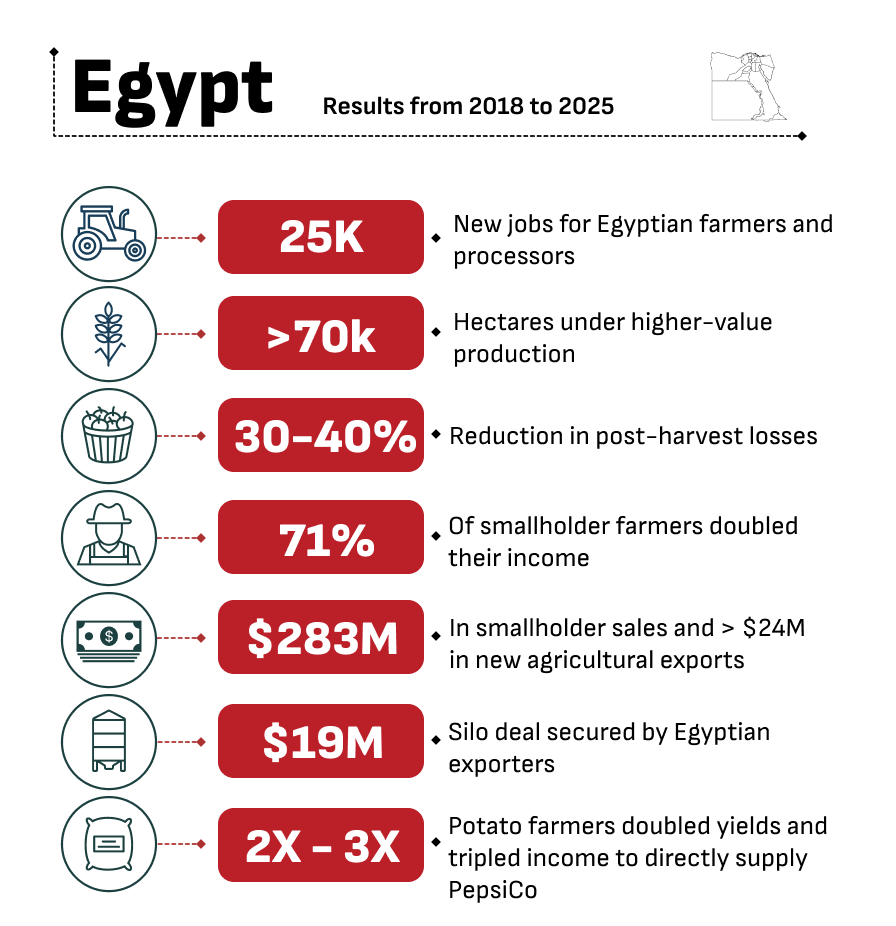US Investment Unlocks Trade-Ready Opportunities in Egypt
BACKGROUND
The Problem Behind the Produce
For much of Egypt’s recent history, smallholder farmers—a third of the county’s population, who grow most of the country’s high-value horticultural crops—were disconnected from input suppliers and sold mostly through informal brokers. Produce spoiled before reaching the market. Exporters couldn’t guarantee traceability.


U.S. buyers had no reliable sourcing path to this vital Middle Eastern ally, the world’s largest wheat importer that itself grows unique fruits, vegetables and spices. Limited access to credit, equipment, handling facilities, and modern farming technologies hindered productivity. Poor infrastructure, inefficient logistics, and inadequate irrigation systems led to 30-40% in post-harvest losses.
WHAT WE'RE DOING
A U.S.-Backed Commercial Playbook
Through a U.S. government initiative, Abt Global supported cold chain infrastructure, value chain linkages, and high-yield production models across 17 governorates in Egypt’s prime cultivation areas. Our team facilitated partnerships among Egyptian farmer organizations, certified input suppliers, and U.S. commercial buyers like PepsiCo, John Deere, chemical and seed company Corteva, chemical manufacturer FMC Corporation, and farming equipment producer New Holland—as well as Giza Seeds & Herbs, an Egyptian supplier to American spice giant McCormick & Company.


We piloted an affordable low-cost cold storage solution from New York-based CoolBot. We sourced hermetic bags from Purdue University as a low-cost solution for safe, long-term storage of agricultural products, especially grains and seeds, to protect them from pests, moisture, and oxygen. We brokered a $19 million deal with Illinois-based Grain Systems Inc to export five state-of-the-art wheat silos to Egypt, reducing storage losses there from 30–40% to less than 5%. And we partnered with Egypt’s Horticultural Export Improvement Association to ensure food safety and manage trade infrastructure, enabling Egyptian grapes, dates, and spices to enter U.S. markets.
Critically, our model helped Egypt become a more viable, U.S.-aligned agri-export partner.
IMPACT
Tangible Results with Long-Term Traction
From higher productivity to contract-ready supply chains, the U.S. delivered durable outcomes for Egypt’s agricultural sector—and opportunities for American companies.


WHY IT MATTERS
Modernized systems bolster trade and economic stability
Egypt is becoming a commercially reliable supplier—because U.S. foreign assistance helped modernize its systems so it could better compete in national and world markets.
This is a playbook for foreign assistance that works. Abt catalyzed U.S. business wins, helped American buyers secure supply chains, and reduced long-term dependency by embedding market incentives. Exporters are investing in processing facilities, and agricultural equipment. Input suppliers are scaling without subsidy. New cold storage systems are privately financed.
In a high-stakes region, Egypt’s stability, trade reliability, and commercial alignment with U.S. interests have all advanced. And it’s happening through agriculture, a sector now delivering greater returns and bolstering the country’s economic resilience.
PROJECT
Feed the Future Egypt Rural Agribusiness Strengthening Project
CLIENT
U.S. Agency for International Development
